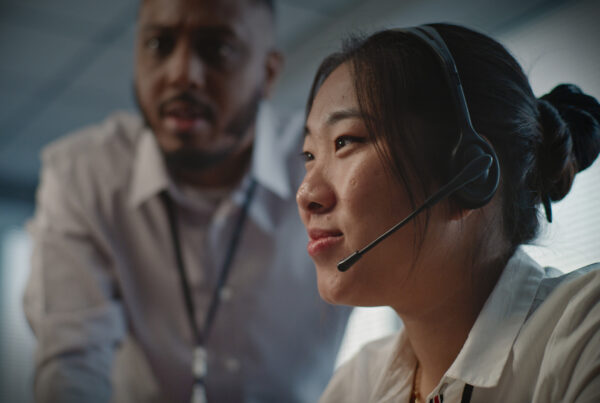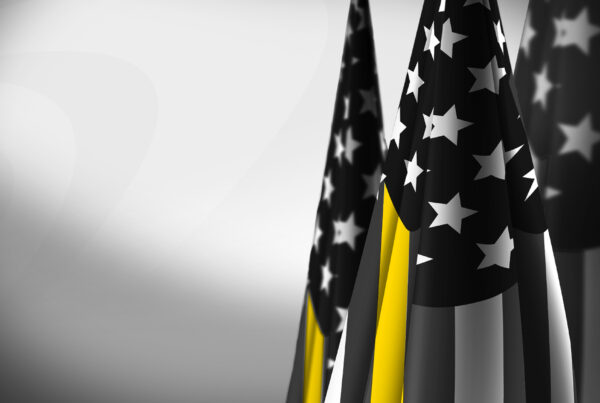01/03/24
In the fast-paced world of emergency response, there’s a group of heroes working diligently behind the scenes, often unnoticed and underappreciated – the 911 telecommunicators. These dedicated professionals are the calm voices on the other end of the line during our most challenging moments, providing a lifeline to safety and support.
We’re backing the 911 SAVES Act, a bi-partisan bill that reclassifies 911 dispatchers as a protective service occupation. The 911 SAVES Act comes at no financial cost, yet it promises to afford 911 professionals well-deserved respect and improved equity in benefits. This includes enhanced mental health support and the opportunity to access government grants. Reclassification also facilitates research into the mental and physical impacts of 911 jobs.
The Unseen Lifesavers
911 telecommunicators play a pivotal role in the US 911 system, acting as the first point of contact during emergencies. They are the calm voices that guide us through the chaos, providing critical aid until help arrives. Whether it’s a medical emergency, a fire, or a crime in progress, these unsung heroes are the backbone of our nation’s emergency response network.
More Than Just Call Takers
911 telecommunicators are not mere call takers. They are highly trained professionals who make split-second decisions, assess situations, and provide life-saving instructions. Their ability to remain composed under extreme pressure is nothing short of extraordinary. They are the vital link between individuals in distress and the first responders rushing to the scene.
Why Reclassification Matters
Despite their crucial role, 911 telecommunicators are not currently classified as first responders. Recognizing them as such is not just a matter of semantics; it holds significant implications for their well-being and the quality of emergency services they provide. Reclassifying 911 telecommunicators as first responders acknowledges the emotional and psychological toll of their work, opening doors to increased support, resources, and recognition.
The Emotional Toll
911 telecommunicators often bear witness to traumatic events over the phone, experiencing the emotional weight of emergencies without the physical presence at the scene. Reclassification would enable them to access the same mental health resources and support systems provided to other first responders, acknowledging the unique challenges they face in their line of duty.
Advocating for Change
It’s time to recognize the invaluable contributions of 911 telecommunicators by advocating for their reclassification as first responders. Their dedication, resilience, and unwavering commitment to public safety make them deserving of the same status as those they guide on the front lines.
By supporting this change, we not only honor their service but also contribute to a stronger and more resilient emergency response system for us all. Let’s shine a spotlight on these everyday heroes and ensure they receive the recognition and support they rightfully deserve.
Reaching out to your key member of congress to ask them to support this critical legislation takes seconds. Go to https://www.votervoice.net/NENA/Campaigns/108990/Respond.

Chris Salafia
CEO
A 30-year industry veteran, Chris holds four patents relating to emergency communications. An unabashed futurist, he enjoys challenging the status quo and engaging people, processes, and technology to improve 911.
Connect on LinkedIn.








